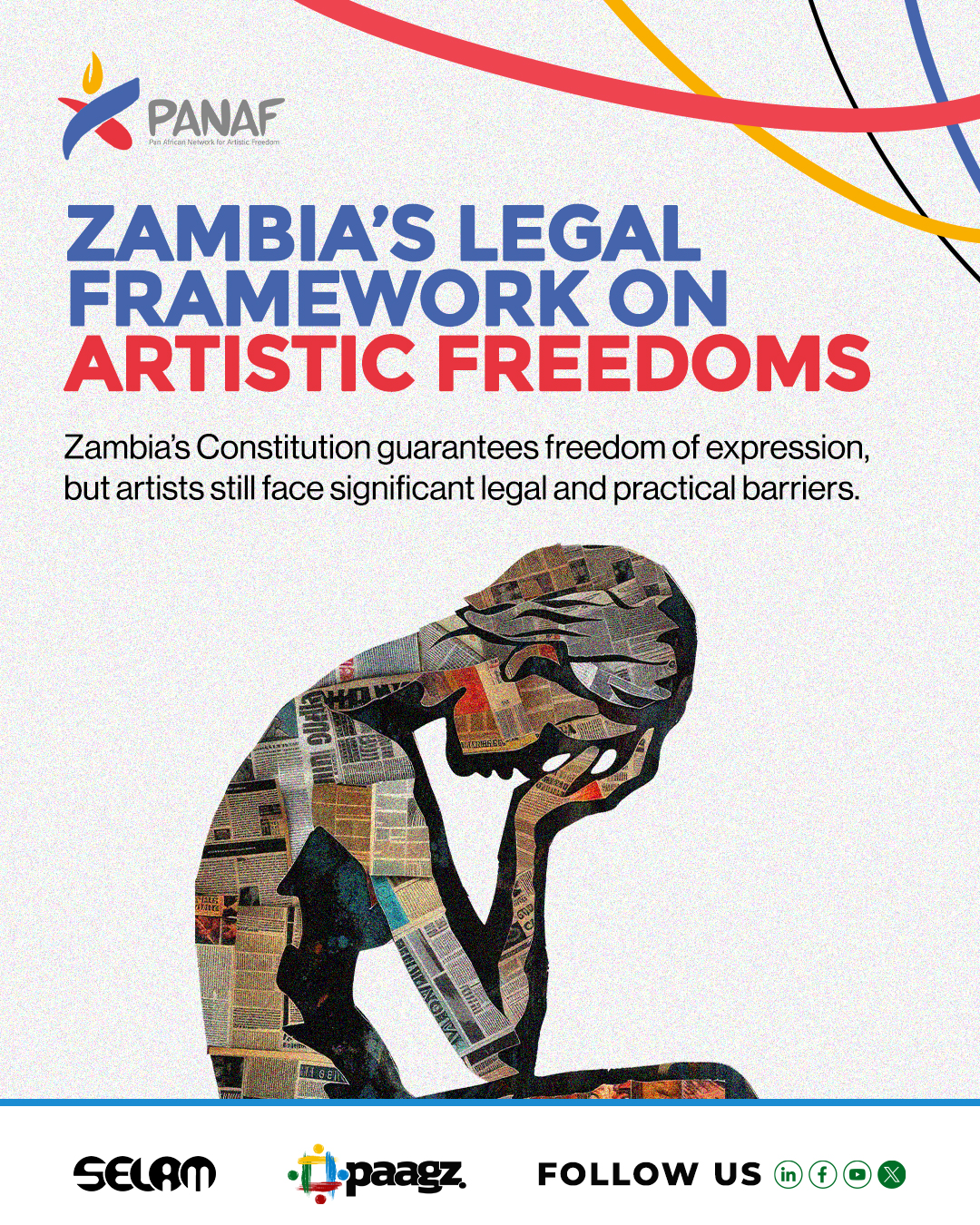Although the defamation of the President provision was repealed in 2022, broad laws on obscenity and cyber offenses continue to restrict artistic voices, especially those tackling political or cultural issues.
Repealing outdated laws is progress, but not enough. Vague legal provisions and inconsistent court decisions still silence satire, music, and visual art that challenge authority. A free society must embrace, not punish, its creative critics.
Although Zambia’s Constitution protects freedom of expression, artists face significant restrictions, particularly on political, social, and cultural issues. Laws such as section 177 of the Penal Code and the Cyber Security Act No.3 of 2025 and Cyber Crimes Act No. 4 of 2025 remain vague with little or no safeguards and can be used to censor cartoonists, satirists, and visual artists.
Court cases like The Attorney General v. Roy Clarke reveal inconsistent judicial support, fostering self-censorship among creatives who fear arrest, harassment, or loss of livelihood. Despite reforms like repealing defamation of the President, broad laws and discretionary powers continue to limit artistic freedoms and discourage full participation in democracy and human rights advocacy. Legal reforms alone are not enough. Zambian artists continue to face intimidation, censorship, and risks of arrest.
PAAGZ supports artists by advocating for clearer laws, providing legal guidance, and creating platforms where creatives can safely express themselves, ensuring their work contributes to human rights and good governance.



